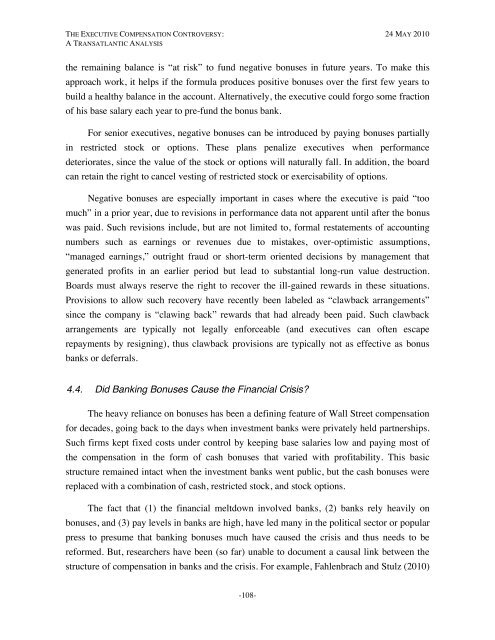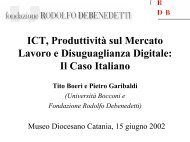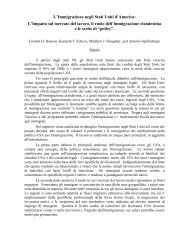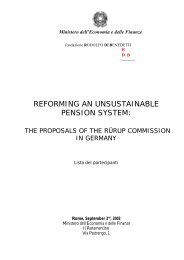The Executive Compensation Controversy - Fondazione Rodolfo ...
The Executive Compensation Controversy - Fondazione Rodolfo ...
The Executive Compensation Controversy - Fondazione Rodolfo ...
You also want an ePaper? Increase the reach of your titles
YUMPU automatically turns print PDFs into web optimized ePapers that Google loves.
THE EXECUTIVE COMPENSATION CONTROVERSY: 24 MAY 2010A TRANSATLANTIC ANALYSISthe remaining balance is “at risk” to fund negative bonuses in future years. To make thisapproach work, it helps if the formula produces positive bonuses over the first few years tobuild a healthy balance in the account. Alternatively, the executive could forgo some fractionof his base salary each year to pre-fund the bonus bank.For senior executives, negative bonuses can be introduced by paying bonuses partiallyin restricted stock or options. <strong>The</strong>se plans penalize executives when performancedeteriorates, since the value of the stock or options will naturally fall. In addition, the boardcan retain the right to cancel vesting of restricted stock or exercisability of options.Negative bonuses are especially important in cases where the executive is paid “toomuch” in a prior year, due to revisions in performance data not apparent until after the bonuswas paid. Such revisions include, but are not limited to, formal restatements of accountingnumbers such as earnings or revenues due to mistakes, over-optimistic assumptions,“managed earnings,” outright fraud or short-term oriented decisions by management thatgenerated profits in an earlier period but lead to substantial long-run value destruction.Boards must always reserve the right to recover the ill-gained rewards in these situations.Provisions to allow such recovery have recently been labeled as “clawback arrangements”since the company is “clawing back” rewards that had already been paid. Such clawbackarrangements are typically not legally enforceable (and executives can often escaperepayments by resigning), thus clawback provisions are typically not as effective as bonusbanks or deferrals.4.4. Did Banking Bonuses Cause the Financial Crisis?<strong>The</strong> heavy reliance on bonuses has been a defining feature of Wall Street compensationfor decades, going back to the days when investment banks were privately held partnerships.Such firms kept fixed costs under control by keeping base salaries low and paying most ofthe compensation in the form of cash bonuses that varied with profitability. This basicstructure remained intact when the investment banks went public, but the cash bonuses werereplaced with a combination of cash, restricted stock, and stock options.<strong>The</strong> fact that (1) the financial meltdown involved banks, (2) banks rely heavily onbonuses, and (3) pay levels in banks are high, have led many in the political sector or popularpress to presume that banking bonuses much have caused the crisis and thus needs to bereformed. But, researchers have been (so far) unable to document a causal link between thestructure of compensation in banks and the crisis. For example, Fahlenbrach and Stulz (2010)-108-









